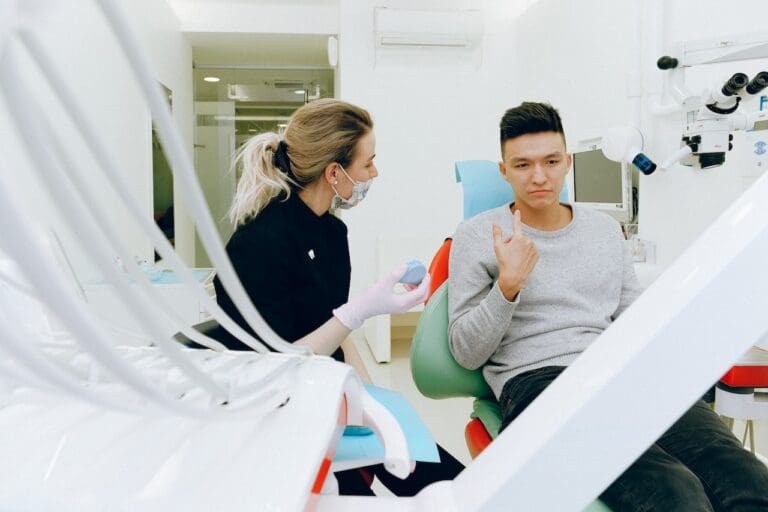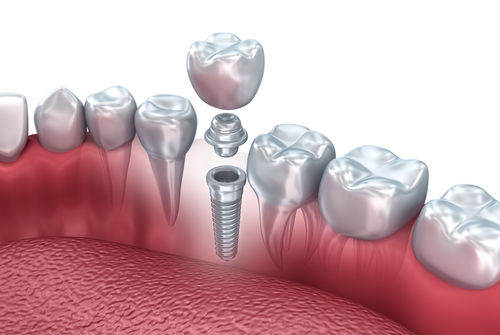For many people, visiting the dentist can be challenging due to fear, anxiety, or unpleasant past experiences. This apprehension often prevents individuals from seeking routine dental care, potentially leading to long-term oral health issues. Fortunately, innovative advancements in dentistry now provide a solution for patients who require a more relaxed and comfortable approach to dental care: sedation dentistry.
Sedation dentistry involves using medication to help patients relax during dental procedures, allowing for painless, comfortable, and efficient treatment. There are various levels of sedation available, ranging from mild to deep sedation, and dentists may use a combination of techniques depending on the individual patient’s needs and the complexity of the procedure. This can be particularly beneficial for individuals with high levels of dental anxiety, phobias or those who require extensive dental work.
In the following sections, we will delve into the different types of sedation dentistry and discuss the numerous benefits this innovative approach brings to patients and dental providers alike. By understanding the options and applications of sedation dentistry, you can confidently make informed decisions about your oral care plan and overcome anxiety and fears associated with dental visits.
Different Types of Sedation Dentistry
Sedation dentistry offers various methods to cater to patients’ unique needs and preferences. A brief overview of these techniques includes:
1. Minimal Sedation: In this form of sedation, the patient remains awake but relaxed. This method typically involves administering nitrous oxide, also known as “laughing gas,” which can be inhaled through a mask placed over the patient’s nose. Once the procedure is complete, the effects of the nitrous oxide wear off quickly, allowing patients to resume their daily activities with minimal downtime.
2. Oral Sedation: With oral sedation, patients take a pill (usually a form of Halcion or Valium) approximately an hour before the dental procedure to induce relaxation and drowsiness. Depending on the dosage, oral sedation can lead to mild to moderate sedation, and in some cases, patients may fall asleep during the treatment but can be easily awakened if needed.
3. IV Sedation: Intravenous (IV) sedation involves administering sedative medications directly into the bloodstream through an IV line for rapid onset and deeper relaxation. The level of sedation can be easily adjusted during the procedure, making it ideal for patients with high anxiety levels and those who require extensive dental work.
4. General Anesthesia: This method involves administering medications that render the patient completely unconscious, ensuring they experience no pain or awareness during the procedure. General anesthesia is typically reserved for more complex dental procedures or for patients with severe anxiety or difficulty cooperating during treatment.
Benefits of Sedation Dentistry
Sedation dentistry offers numerous benefits for both patients and dental professionals alike, some of which include:
1. Reduced anxiety and fear: One of the primary benefits of sedation dentistry is that it helps patients with dental anxiety feel more comfortable and relaxed during procedures, encouraging regular dental care and reducing the likelihood of delaying necessary treatment.
2. Enhanced efficiency: Sedation dentistry can make lengthy or complex dental procedures more manageable for patients by reducing discomfort and allowing them to remain still and relaxed, leading to a more efficient treatment process.
3. Improved patient cooperation: For patients who have difficulty sitting still, have a strong gag reflex, or struggle with physical or cognitive impairments, sedation dentistry can significantly improve their ability to cooperate during dental procedures.
4. Pain reduction: Sedation dentistry minimizes pain and discomfort, ensuring patients have a more positive and pleasant dental experience.
5. Long-term oral health benefits: By alleviating anxiety and fear and facilitating comfortable dental care, sedation dentistry encourages patients to maintain regular dental appointments, ultimately promoting better long-term oral health.
Safety and Precautions in Sedation Dentistry
Sedation dentistry is considered safe when administered by a qualified dental professional who follows established guidelines and protocols. However, it’s essential to take some precautions before undergoing sedation dentistry:
1. Consultation with your dentist: Your dentist will assess your medical history, current medications, and any potential risk factors to determine the most appropriate sedation method and dosage for your needs.
2. Communicate your concerns: Be sure to discuss any anxiety or fears about dental procedures with your dentist so they can provide the necessary guidance and support to ensure a comfortable and positive experience.
3. Follow all pre- and post-treatment instructions: Your dentist will provide specific instructions to prepare for the sedation dentistry procedure and ensure a smooth recovery. Depending on the type of sedation used, these instructions may include fasting before the appointment, arranging for someone to drive you home after the procedure, or taking prescribed medications as advised.
4. Choose a qualified dental professional: Sedation dentistry should only be performed by a dental professional with the appropriate training and experience in administering sedation techniques.
Final Thoughts
Sedation dentistry provides a valuable solution for patients who experience anxiety or fear about dental procedures, offering a comfortable, pain-free, and efficient approach to oral care. By understanding the various types of sedation methods and their benefits, you can confidently choose the right option for your needs and work with your dentist to overcome dental anxiety.
At Liberia Dental Care in Manassas, VA, our compassionate team of dental experts is dedicated to ensuring a comfortable and anxiety-free environment for our patients. If you are considering sedated dental care, schedule a consultation with us today to explore the options available and discuss how we can help make your dental visits a more positive and enjoyable experience!









